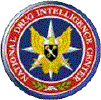UNCLASSIFIED

|
|
||||||||
|
Background photo © John Foxx Images: Printable brochure (69 KB pdf) |
BZP
|
|
|
|
|
How is BZP used?
BZP usually is consumed orally. The drug also can be snorted or smoked, but these methods of administration are less common. Common oral dosages of BZP range from 20 to 200 milligrams. The effects of BZP generally last from 6 to 8 hours.
Who abuses BZP?
BZP primarily is abused by teenagers and young adults. The drug often is used at raves, nightclubs, private parties, and other venues where the use of club drugs, particularly MDMA, is well established.
What are the risks?
The risks associated with BZP abuse are similar to those associated with amphetamine abuse. Stimulants, including BZP and amphetamine, decrease appetite, dilate pupils, and increase blood pressure and heart and respiration rates. Other effects include anxiety, blurred vision, dizziness, and insomnia. Chronic abuse of stimulants can cause irregular heartbeat and can lead to delusions, hallucinations, and paranoia.
Compounding these risks is the uncertainty of the BZP dosage in a particular tablet, capsule, or quantity of powder--high dosages can cause overdoses. Further, BZP tablets often contain additional substances. Laboratory testing of some tablets that contained BZP showed that the tablets also contained TFMPP, cocaine, and dextromethorphan (DXM).
What is it called?
The most common street terms for BZP are listed below.
Street Terms for BZP
|
Is BZP illegal?
Yes, BZP is illegal. In March 2004 the Drug Enforcement Administration (DEA) designated BZP a Schedule I substance under the Controlled Substances Act. Schedule I drugs, which include heroin and MDMA, have a high potential for abuse and serve no legitimate medical purpose in the United States.
Other products of interest:
Check out Fast Facts on:
- 5-MeO-AMT
- AMT
- Crack cocaine
- Crystal methamphetamine
- Drug abuse and mental illness
- Drug-facilitated sexual assault
- Drug paraphernalia
- Drugs and gangs
- Drugs and the Internet
- DXM
- Fentanyl
- Foxy
- Fry
- GHB and analogs
- Heroin
- Inhalants
- Jimsonweed
- Ketamine
- Khat
- LSD
- Marijuana
- MDMA
- Methadone
- Methamphetamine
- Meth lab ID and hazards
- OxyContin
- PCP
- Powdered cocaine
- Prescription drugs
- Psilocybin
- Ritalin
- Rohypnol
- Salvia divinorum
- Soma
- Steroids
- Teens and drugs
- Triple C
- Yaba
Also available from NDIC:
- Huffing--The Abuse of Inhalants
- Prescription Drug Abuse and Youth
- Drugs, Youth, and the Internet
For more information on illicit drugs check out our web site at: www.usdoj.gov/ndic. Call 814-532-4541 to request NDIC products.
Contact us
Our addresses:
National Drug Intelligence Center
319 Washington Street, 5th Floor
Johnstown, PA 15901-1622Tel. (814) 532-4601
FAX (814) 532-4690
E-mail NDIC.Contacts@usdoj.govNational Drug Intelligence Center
United States Department of Justice
Robert F. Kennedy Building (Room 3341)
950 Pennsylvania Avenue NW
Washington, DC 20530-2000Tel. (202) 432-4040
FAX (202) 514-4252NDIC publications are available on the following web sites:
ADNET: http://ndicosa.adnet.sgov.gov/index.htm
DOJ: http://www.usdoj.gov/archive/ndic/
LEO: https://www.leo.gov/http://leowcs.leopriv.gov/lesig/archive/ndic/index.htm
RISS: ndic.riss.net


